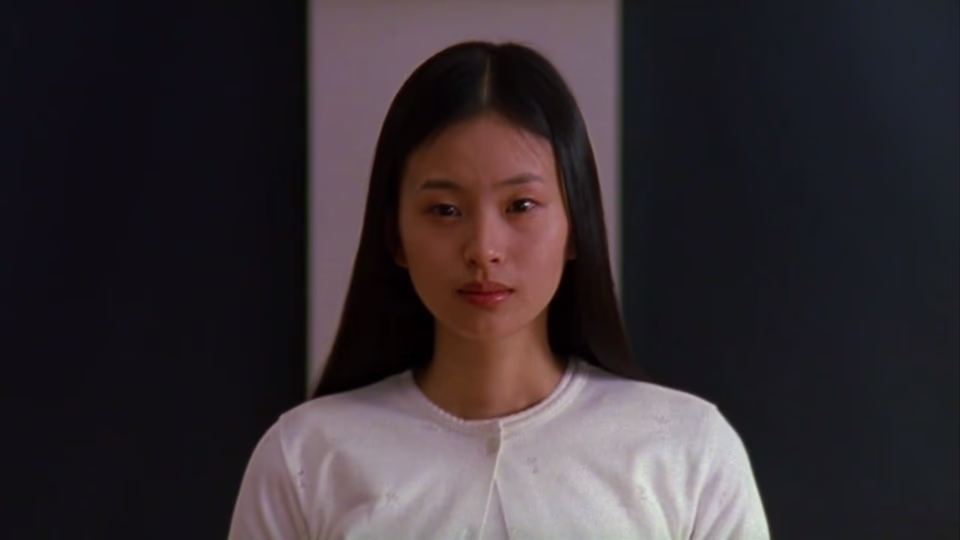Audition

If you’ve never heard of Audition, please go watch it now. Don’t look at any posters, or read any synopsis. I envy folks going in cold.
Okay, if you’re still reading, I’m hoping you’ve either seen the film or know the plot. But for those requiring some context, here’s the setup:
Audition opens in a hospital. We meet Shigeharu and his elementary-school aged son just as Shigeharu’s wife succumbs to a fatal illness. Shigeharu seems to collapse under the loss and the film jumps forward to present day. Shigeharu has coped with the loss, having raised his now teenage son on his own and grown his small publishing company to a healthy success. One night at dinner, Shigeharu’s son suggests that Shigeharu remarry. Shigeharu brushes off the comment, but it forces him to acknowledge his loneliness. Over drinks, Shigeharu mentions his intent to remarry to his commercial-producing friend. The friend suggests they hold an open audition for a fake film to find Shigeharu a suitable partner. At first, Shigeharu demurs, but his loneliness proves too great, and he relents. Sifting through the mass of applicants, he zeroes in on one woman, Asami. But Asami may not be all she seems.
It’s all spoilers from here, so please, if you haven’t seen the film and you’re intrigued, stop reading, watch the movie, and come back.
Still here? Okay. Audition delivers a prescient look at male privilege. It could be made today, though I fear a contemporary version would lack this effort’s nuance. And it’s that nuance that makes Audition so resonant. It’s not the violence that haunts me, but the moral questions the film raises.
Granted, the violence proves memorable. The climactic torture scene involves amputation and brutal acupuncture. Like the most intense films, the film shows less than you remember, but the experience overwhelms. It also proffers a gag-inducing sequence where Asami vomits into a bowl, then feeds it to a captive man who laps it up like milk.
But the film earns these extreme moments. They sugar-coat the deeper, uglier, moral questions it unearths. Shigeharu isn’t the serial predator Asami believes, but a lonely man who gave into the temptation to leverage his privilege to find love. Does he deserve the wrath inflicted upon him? Asami wasn’t born a monster, but created by years of male abuse. Where is her justice? I loved how the film challenges our assumptions and refuses to cast either character as one-dimensional. The violence shocks, but the undercurrent resonates.
And there’s a telephone sequence that stands as one of the most memorable in horror cinema.